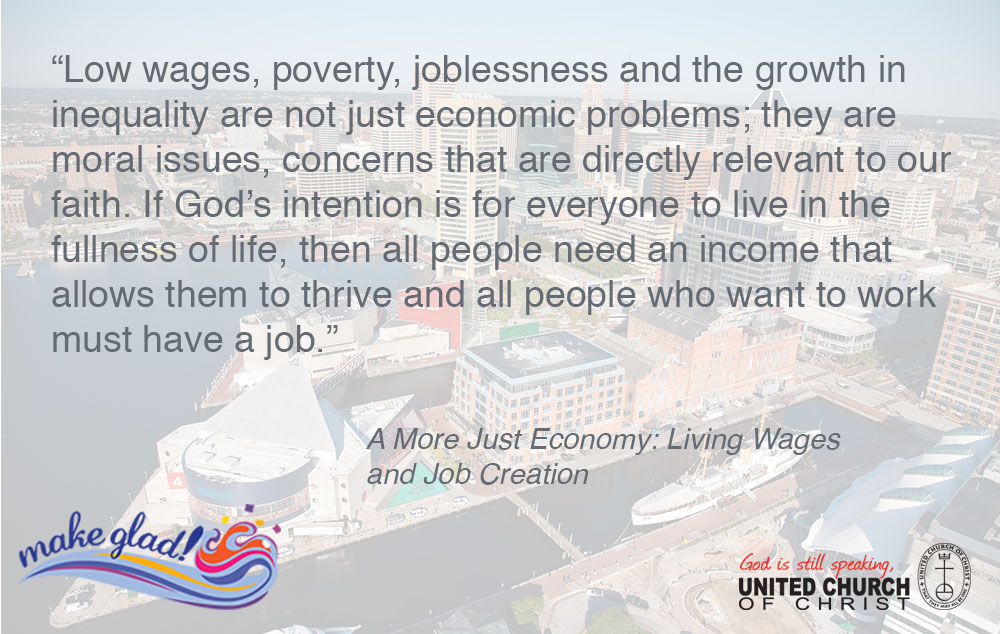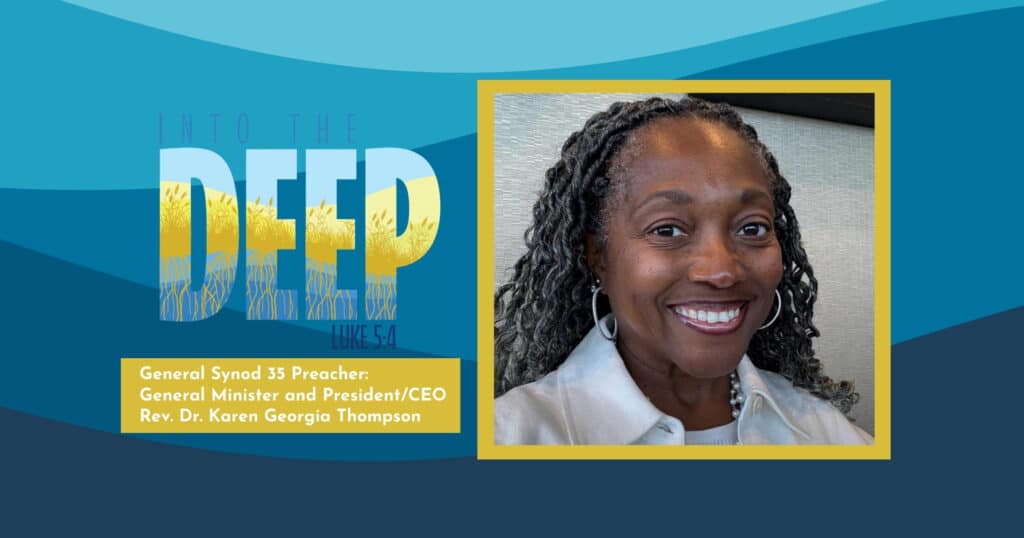Two General Synod resolutions take aim at economic inequality
 The U.S. economy has essentially recovered from the recession of a decade ago, but not everyone in the country has enjoyed similar levels of prosperity. Two resolutions to the 31st General Synod of the United Church of Christ will address that issue by calling for steps aimed at creating a just economy with living wages.
The U.S. economy has essentially recovered from the recession of a decade ago, but not everyone in the country has enjoyed similar levels of prosperity. Two resolutions to the 31st General Synod of the United Church of Christ will address that issue by calling for steps aimed at creating a just economy with living wages.
“There has been a growing impetus behind economic inequality — the rich getting richer, and the poor getting poorer. This is an effort to reverse that,” said Edith Rasell, the UCC’s minister for economic justice.
The resolutions will be considered by General Synod delegates when the biennial gathering meets June 30 through July 4 in Baltimore.
One resolution, brought forward by 16 General Synod delegates who are part of the UCC Economic Justice Network or were asked to support the resolution, calls for all settings of the UCC to advocate for living wages with Congress and policymakers — by enacting a livable minimum wage (a wage high enough to meet a comfortable standard of living), supporting worker-led efforts for better conditions, and enacting fair trade agreements over free trade agreements.
“We feel that this problem is important now because even though the economy is doing well in some regards, we have problems with wages, with unemployment and it’s an important matter to bring to the Synod’s attention,” Rasell said, adding that the resolution has emerged from within the economic justice movement of the church.
“It’s also a guide for advocacy — it speaks to how people can support living wage issues in their localities, and larger advocacy efforts around fair trade and call on Congress to create jobs,” she added.
Should delegates approve the resolution, Rasell is hopeful that UCC members will get out into the streets and support worker-led efforts. “There are multiple campaigns going on around economic justice — boycotting Wendy’s until they join the Fair Food Program and the Fight For 15 by fast-food restaurant workers (a worker-led movement that calls for a $15 per hour minimum wage)— and this resolution calls to support that.”
The other resolution, sponsored by the Connecticut Conference of the UCC, asks the church to support legislation that would raise municipal, state and federal minimum wage to $15 per hour, and asks settings of the UCC to examine what they pay their full-time and part-time staff and make efforts to reach a $15 per hour minimum by 2019.
“It’s a national issue. There are many sides to the equation, but we’ve got employers in Connecticut who have gone this way,” said the Rev. Kent Siladi, Connecticut Conference minister.
Two states have recently approved $15 minimum wages — New York by 2019 and California by 2022. Both states are allowing small business to implement the wage standard more slowly. There are $15 minimums enacted in several U.S. cities, and Siladi believes that a higher minimum wage will be better for businesses by increasing worker morale, decreasing staff turnover and attracting better-qualified job applicants.
The federal minimum wage is $7.25 per hour ($1250 per month or $15,000 per year before taxes) — the U.S. Department of Health and Human Services considers the poverty level at $24,250 for a family of four. Raising the minimum wage to $15 per hour would bump the annual income to $32,000.
“The practical and moral imperative is clear. A person working full time should not remain in poverty,” Siladi said. “An American society with integrity cannot justify paying people a poverty-level wage… How we treat and pay our lowest-paid workers is a measure of who we are and aspire to be as a people.”
Related News
2025 Climate Hope Art Contest award winners plant seeds of hope
The celebration of the 2025 Climate Hope Art Contest for children and youth of the United...
Read More‘Not your typical webinar’: Womxn 2 Womxn series aims to foster community
As the church works towards gathering this summer at General Synod 35 in Kansas City,...
Read MoreThompson to bring a ‘prophetic and pastoral’ message to Synod: ‘We are not all the same, but still one body’
On Sunday, July 13, the Rev. Dr. Karen Georgia Thompson will take the stage at the 35th...
Read More



